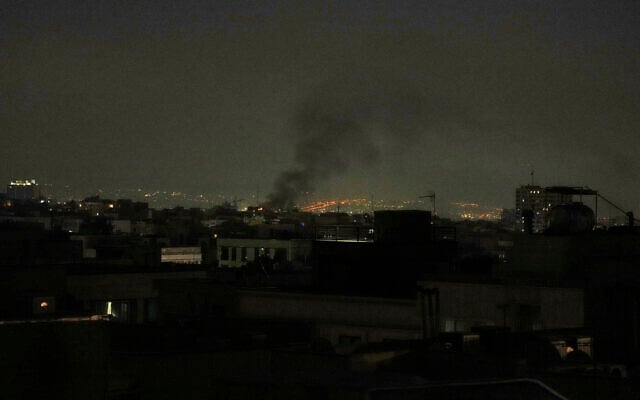


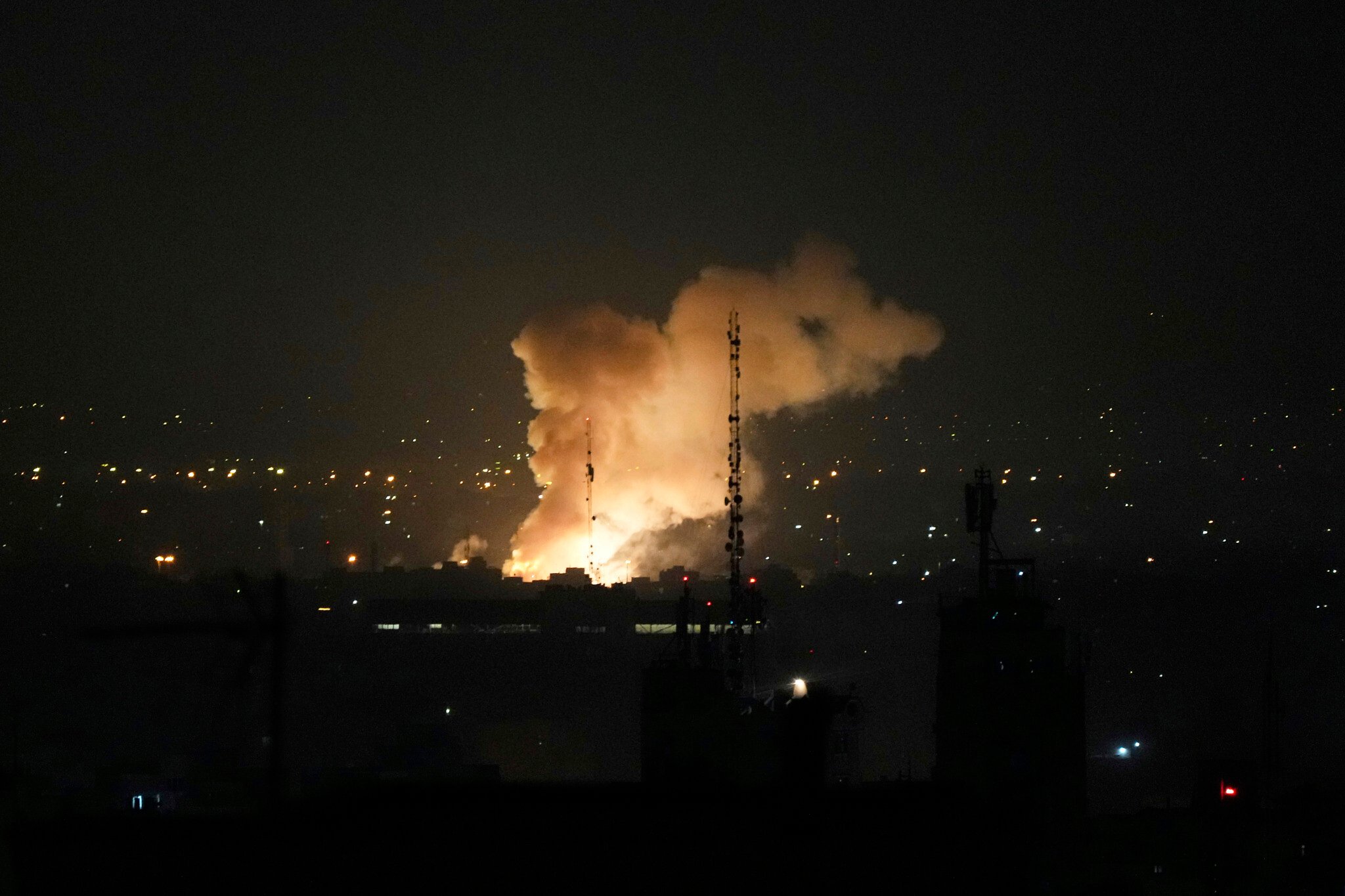
The Times of Israel is liveblogging Thursday-Friday’s events as they happen.
Israeli envoy to UN: Israel has dialogue with US, but strike on Iran was independent decision
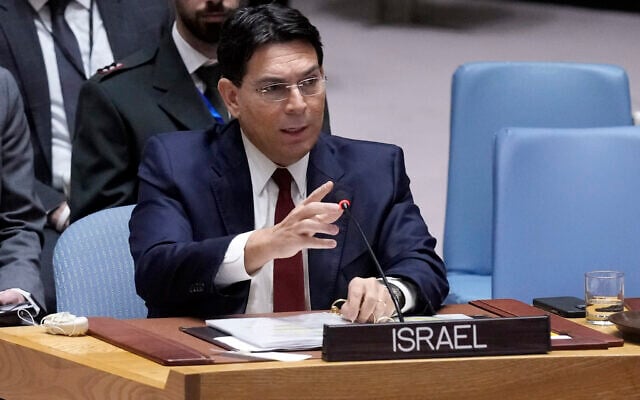
Israel’s ambassador to the United Nations says Israel has an ongoing dialogue with the United States but its determination to strike Iran was an independent Israeli decision.
When asked in a CNN interview if Israel expected the US to assist Israel in case of an Iranian response, Israel’s UN Ambassador Danny Danon says: “Don’t think we should go into speculation.”
IDF chief: A time of difficult decisions; we’ve long prepared for this
IDF Chief of Staff Lt. Gen. Eyal Zamir says the military is “mobilizing tens of thousands of soldiers and preparing across all borders.”
“I warn that anyone who tries to challenge us will pay a heavy price,” he says.
“It is necessary at this time to make difficult decisions, and be confident that all the decisions made are taken with a view of the gravity of the situation. People of Israel, I can’t promise absolute success. The Iranian regime will attempt to attack us in response. The expected cost will be different from what we are used to,” Zamir says.
“We have been preparing this operation for a long time; unprecedented efforts have been made across all branches and directorates to achieve readiness against the tangible and present threat,” he adds.
Iran state media names two nuclear scientists killed in Israeli strike
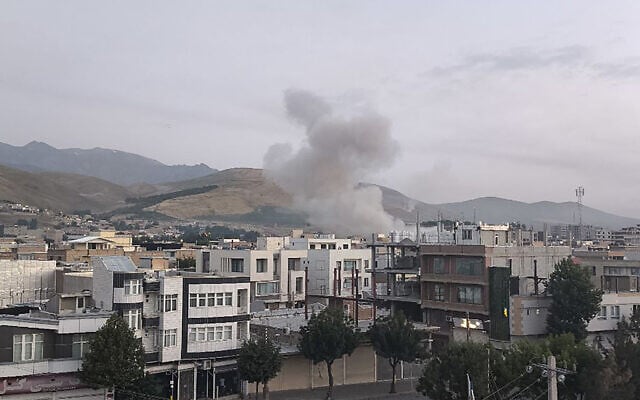
Iran’s state TV says nuclear scientists Fereydoun Abbasi-Davani and Mohammad Mehdi Tehranchi were killed in an Israeli strike earlier this morning.
Israel has said it believes a number of members of the military’s top brass and senior nuclear scientists were killed in the IDF’s opening strikes on Iran.
PM, defense minister told IDF on Monday to prepare for today’s strike
Prime Minister Benjamin Netanyahu and Defense Minister Israel Katz on Monday signed a directive ordering the IDF to prepare for its action in Iran, a defense official says.
In coordination with Chief of Staff Lt. Gen. Eyal Zamir, Netanyahu and Katz “decided on the operation date — today,” the official adds.
Defense minister asks labor minister to activate emergency labor measures
Following Israel’s strike on Iran’s nuclear sites and the subsequent declaration of a nationwide state of emergency, Defense Minister Israel Katz calls on Labor Minister Yoav Ben-Tzur to activate emergency labor measures.
According to the Defense Minister’s office, Katz is requesting the use of special authority under the Emergency Labor Service Law to ensure the continued operation of critical factories. The move would allow essential facilities to summon employees — and if necessary, require their attendance — even if the wider economy is shut down under Home Front Command directives.
Iran’s Revolutionary Guard commander Hossein Salami killed in Israeli strike, says Iranian state media
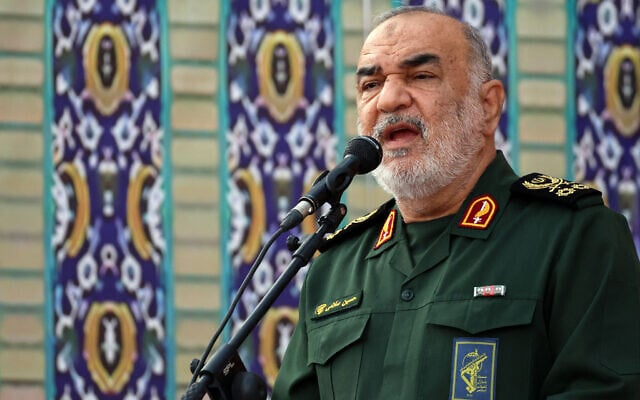
Iranian state media confirms the killing of Islamic Revolutionary Guard Corps Commander Hossein Salami in an Israeli strike.
“Major General Hossein Salami, head of the Islamic Revolutionary Guard Corps, was martyred in the Israeli regime’s attack on the IRGC headquarters,” the local Tasnim news agency reports.
Iran’s Revolutionary Guard is one of the main power centers within the country’s theocracy. It also controls Iran’s arsenal of ballistic missiles.
In addition to Salami, Israel believes the chief of Iran’s military, Mohammad Bagheri, other members of the military’s top brass, and senior nuclear scientists were eliminated in the IDF’s opening strikes on Iran.
Report: Mossad carried out covert sabotage operations against Iranian air defenses, long-range missiles
The Mossad carried out a series of covert sabotage operations against Iranian air defenses and missile facilities in tandem with the widespread strikes at a number of locations across Iran.
“A senior Israeli official told me that other than airstrikes, the Israeli Mossad, the foreign intelligence agency, conducted several operations inside Iran against Iranian air defenses and against Iranian long-range missiles,” Axios reporter Barak Ravid tells CNN.
On X, Ravid describes them as “covert sabotage operations deep inside Iran.”
Dozens of targets across Iran related to the nuclear program, military facilities and military commanders have been struck by the Israeli Air Force. Israel is now bracing for the expected response from Tehran.
IDF chief: We reached point of no return, we have no choice
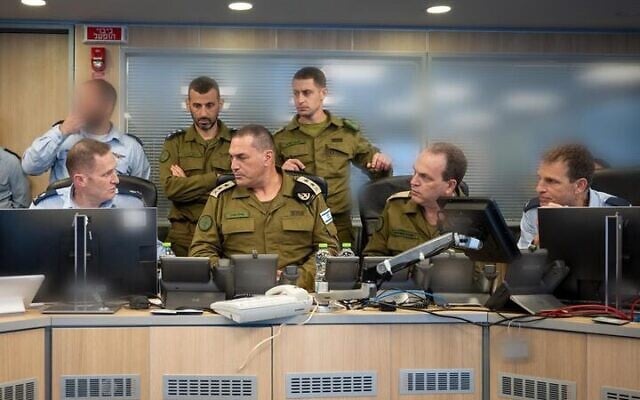
IDF Chief of Staff Lt. Gen. Eyal Zamir says the military launched its attack on Iran’s nuclear program and military “because the time had come; we’d reached the point of no return.”
“We cannot wait for another time to act, we have no choice,” he says in remarks published by the IDF.
“History, both distant and recent, has taught us that in the face of ambitions to destroy us, we must not bow our heads, and so we fight to preserve our existence. Freedom is granted to those who are willing to fight for it,” he adds.
Defense official: If strike succeeded, we did to Iran in 10 minutes what we did to Hezbollah in 10 days
An unnamed defense official tells Army Radio: “The opening strike included air defense targets, [strikes on] surface-to-surface missiles, and a wide wave of senior Iranian officials being neutralized, timed with great precision — simultaneously hitting the Iranian General Staff and nuclear scientists across Iran.”
He adds: “If this opening strike succeeded — then what we did to senior Hezbollah officials over 10 days — we did to Iran in 10 minutes.”
Deaths reported in Israeli strikes on residential buildings in Tehran — Iranian state media
Iranian state media says there have been a number of deaths after residential buildings in the Iranian capital were hit in an Israeli strike.
“Several buildings in Tehran… have been targeted by attacks,” the official IRNA news agency said, naming neighborhoods in multiple locations in the capital.
Israel believes the chief of Iran’s military, Mohammad Bagheri, other members of the military’s top brass, and senior nuclear scientists were eliminated in the IDF’s opening strikes on Iran.

